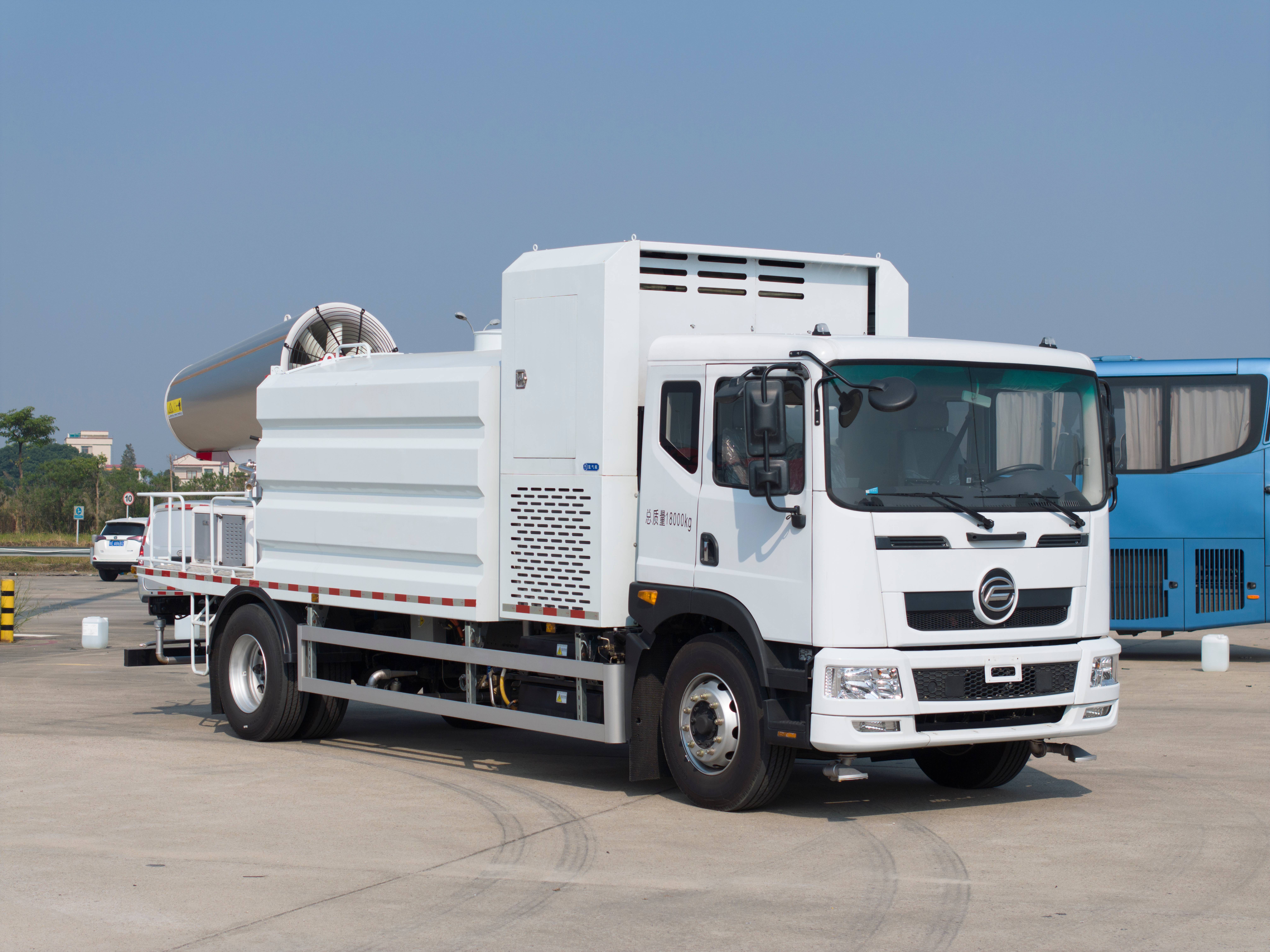Recently, a 49-ton fuel cell trailer tractor manufactured by Feichi Technology embarked on a journey from Zibo City, Shandong Province, to Wuxi City, Jiangsu Province, carrying a cargo of 23.25 tons. Traversing Shandong and Jiangsu, the truck passed through more than ten prefecture-level cities and refueled at four Sinopec hydrogen refueling stations in Linzi, Jinan, Xuzhou, and Yangzhou. After three days and a total distance of 1,944 kilometers, the truck successfully completed its mission. This long-distance, interprovincial transport by Feichi's fuel cell trailer tractor not only symbolizes substantial progress in the exploration of zero-carbon, cross-provincial long-haul logistics with hydrogen energy but also underscores Feichi Technology's advancement to a higher level in the field of hydrogen transportation.
Fuel cell vehicles boast fast refueling capabilities, offering significant advantages in long-distance heavy-duty and trunk logistics transportation. However, for years, their application has been limited to short-distance road transport and related scenarios due to the inadequate hydrogen refueling network and limited driving range. By leveraging the reliability, stability, and low energy consumption of its products, Feichi's fuel cell trailer tractor overcame the current limitations of insufficient hydrogen refueling stations, breaking through the barriers of short-distance transportation and achieving a milestone in interprovincial, long-distance transportation. This not only sets an industry benchmark but also connects the Beijing-Tianjin-Hebei urban agglomeration with the Shanghai urban agglomeration, overcoming the hydrogen refueling shortcomings and realizing regional coordination. It provides practical verification experience for promoting the construction of hydrogen refueling infrastructure along highways.
Since 2023, the development of hydrogen energy has accelerated with the introduction of various favorable policies. In December 2023, the State-owned Assets Supervision and Administration Commission (SASAC) of the State Council proposed the "Initiative for Jointly Building China's Hydrogen Energy Highway," which includes accelerating the construction of hydrogen refueling stations on highway networks and launching the construction of China's hydrogen energy highway. It also recommends preferential policy support for high-speed operating vehicles and hydrogen refueling stations, as well as the introduction of policies to reduce or exempt highway tolls. The "Government Work Report" this year mentioned hydrogen energy for the first time as a cutting-edge emerging industry. Effective from March 1, Shandong Province exempted hydrogen-powered vehicles from highway tolls for a two-year trial period. On March 22, the National Energy Administration issued the "Guidance on Energy Work in 2024," clearly stating the acceleration of policies to promote the high-quality development of the hydrogen energy industry. In April, the Sichuan Provincial Department of Transport also expressed its intention to actively explore full exemption of highway tolls for hydrogen-powered vehicles and encourage urban governments to lift restrictions on hydrogen-powered trucks in urban areas.
As a new energy vehicle enterprise integrating the research, development, production, and sales of fuel cell vehicles, Feichi Technology is committed to providing society with safe, low-carbon, and sustainable green travel solutions. This successful interprovincial, long-distance transportation application scenario is a significant demonstration of Feichi Technology's accelerated layout in the "hydrogen highway" race. Looking ahead, Feichi Technology will remain application-oriented and customer-centric, continuously driving the development and application of hydrogen energy scenarios, extending and expanding the hydrogen energy industrial chain, contributing to China's hydrogen highway construction, and fueling the pioneering region for China's new development paradigm with "hydrogen power."
News hot spot







